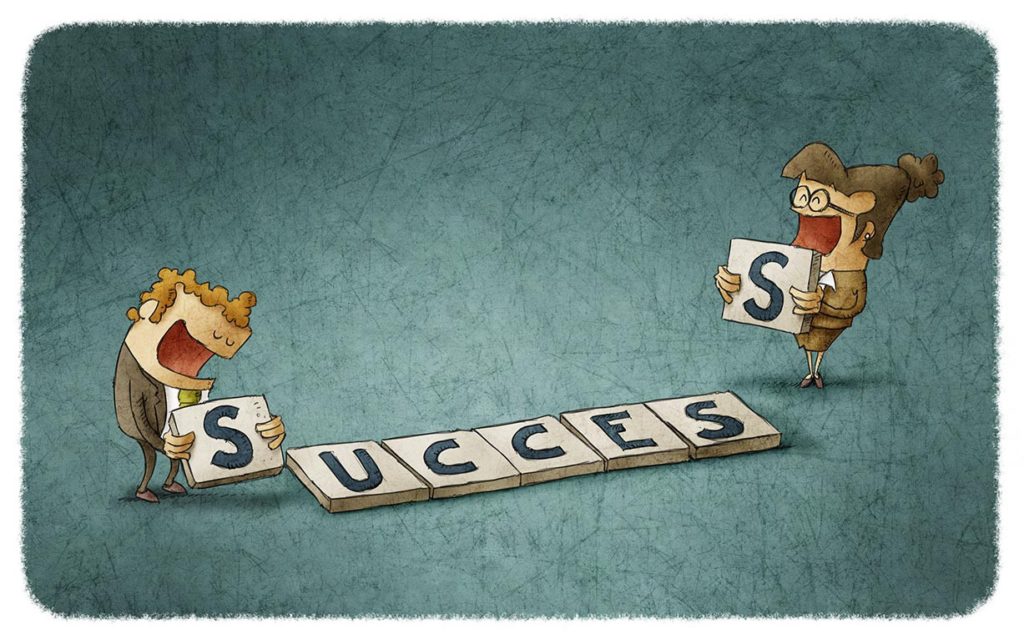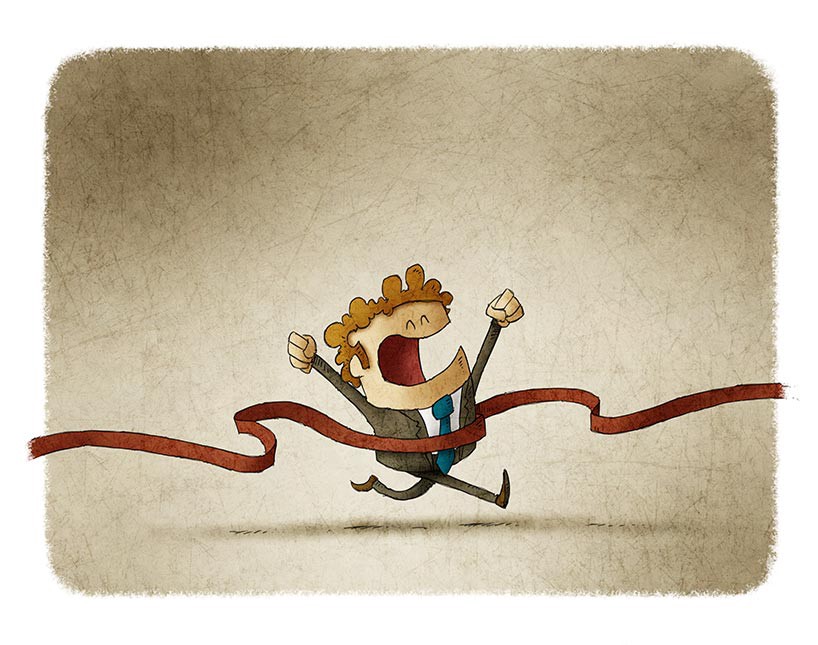Are You An Effective Delegator? Find out Now.
Are you an effective delegator? Let’s take a simple test to find out.
To begin, read each question below and determine if any of the situations apply to you.
#1 Do you find yourself stressed out, spending extra hours accomplishing routine tasks?
How often do you feel others don’t take ownership of their work and you need to step in and pick up the slack?
#2 Do you find yourself consistently missing deadlines or producing mediocre results?
How often do you find yourself “trying to do it all” only to fall short in the end?
#3 Do you find yourself micro-managing others or feel they are not capable of doing the task?
How often do you feel it’s easier to do the task yourself rather than trusting others for help?
If you answered “Yes” to one or more of these questions, you are not alone.
Delegating tasks “correctly” is a skill that requires experience and discipline to master. To help, I’ve put together this guide as a reference outlining the key benefits, skills required, and a few helpful tips towards effective delegation.
The Foundation for Effective Delegation

Effective delegation can be distilled into two principle skills: Self-Awareness and Communication. In this section, we will review each skill, highlighting the key do’s and don’ts.
Self-Awareness
The ability to be aware of the control you want as the delegator vs. the amount of control required to give up to the delegatee.

Do’s and Don’ts
Do: Be thoughtful about what you can hand off
Don’t: Delegate too much at one time
Do: Choose tasks that align with the person’s career goals
Don’t: Delegate to the wrong person
Do: Identify ways to coach and mentor providing ongoing growth opportunities
Don’t: View delegation as a onetime event
Do: Practice adaptive leadership
Don’t: Delegate without adjusting your leadership style throughout the process
Do: Learn to trust and support from afar
Don’t: Delegate without providing the appropriate level of autonomy
Communication
The ability to clearly articulate the roles, responsibilities, goals, timelines, and expected results.

Do’s and Don’ts
Do: Provide clarity on why the task is important
Don’t: Expect people to read your mind
Do: Align on a due date for completing the task
Don’t: Delegate without an end date in mind
Do: Outline what success looks like
Don’t: Delegate without explaining why something must get done
Do: Discuss what resources are required to ensure success
Don’t: Only delegate down and not up or sideways
Do: Establish regular check-ins to monitor progress
Don’t: Delegate without following through
The art of delegation is a journey. Remember to be self-aware, avoiding excessive criticism of others or of situations, while communicating continuously providing clear direction and guidance. If you master these two skills, you will reap the benefits of delegation.
The Benefits of Delegation

f done properly, delegation can have a positive effect on workplace culture. In this section we will review the three benefits of delegation and the impact they have on the individuals you interact with.
Efficiency: Want to reduce stress?
Delegate work to team members whose skills are better suited for the task. This will keep the team productive, giving you time to focus on planning and strategizing for the future.
Development: Want to build trust?
Encourage team members to become experts, even if that means they may surpass your abilities. Not only will this strengthen the relationship between leader and team member, it ensures the overall success of the team.
Empowerment: Want to promote accountability?
Invest in your team members through coaching and mentorship helping them learn new skills, then delegate tasks so they use those new skills. This will encourage them to take a personal interest in their own development to learn and grow.
As you can see, delegation has its benefits. And as a leader, mastering this skill can dramatically improve the overall well-being of your team.
Are you still with me? Great! The final section pulls everything together and covers nine techniques you can use to delegate like a pro.
Delegate like a Pro by Mastering these Techniques

Now that you have the fundamentals down, it’s time to put that knowledge to use.
Tim Brighouse, the former Schools Commissioner for London, defined nine levels of delegation, each level representing the amount of autonomy the delegator gives to the delegatee. The trick is knowing when to use each level. This is where self-awareness and communication come in.
Let’s take a look at each in more detail.
Level 1: Look into this problem. Give me all the facts. I will decide what to do.
Level 2: Let me know the options available with the pros and cons of each. I will decide what to select.
Level 3: Let me know the criteria for your recommendation, which alternatives you have identified and which one appears best to you with any risk identified. I will make the decision.
Level 4: Recommend a course of action for my approval.
Level 5: Let me know what you intend to do. Delay action until I approve.
Level 6: Let me know what you intend to do. Do it unless I say not to.
Level 7: Take action. Let me know what you did. Let me know how it turns out.
Level 8: Take action. Communicate with me only if the action is unsuccessful.
Level 9: Take action. No further communication with me is necessary.
Tip: It’s a good idea to practice using the different levels of delegation so you become familiar with the type of language needed for each and are able to use them interchangeably. Doing so will enable you to adapt your style to fit the situation and person to whom you are delegating to.
Let’s take look an example.
Case in Point
In this example, we will review a single scenario using three different levels of delegation.
Scenario: You have just given your employee a set of requirements and need them to accomplish a critical task for an upcoming staff meeting.
Using Level 1 Delegation, you say, ‘Please review the requirements. Come back and tell me how long you think it might take you to accomplish the task, then I can decide whether you have time to do it before the staff meeting.’
This approach does not leave the employee much room for maneuvering, nor does it give them much chance to develop their own skills or take control of their lives.
Using Level 6 Delegation, you might say ‘Please review the requirements, and come back and tell me when you think you might be able to accomplish the task. Once you’ve told me when you’re going to do it, I expect you to just get on and do it.’
This approach ensures there is a partnership in the task and the timing on when it’s completed. You might need to remind them later, but you are reminding them about a commitment which they have made to you, rather than an order you gave them. The control is shared.
Using Level 9 Delegation, you might say ‘You need to review these requirements and I don’t mind when you do it, but it has to be complete by the upcoming staff meeting this Friday.’
You are putting a high degree of trust in your employee to do as you ask. This level of delegation doesn’t really give you any option to say ‘Have you done it yet?’, as you have given full autonomy to your employee. As long as they hit the due date, all is OK.
Wrapping Up

Delegation can be a powerful tool if used correctly. The key is knowing when and how to delegate.
By honing in on your self-awareness and communication skills, you will master the nine levels of delegation in no time. As a result, you will start to see an less stress, more trust and accountability across your team and organization.
Now what are you waiting for? Get delegating!
References:
- https://www.dumblittleman.com/13-warning-signs-that-what-youve/
- eBooks by Skills You Need — Leadership Skills: Developing The Skills You Need to Lead







